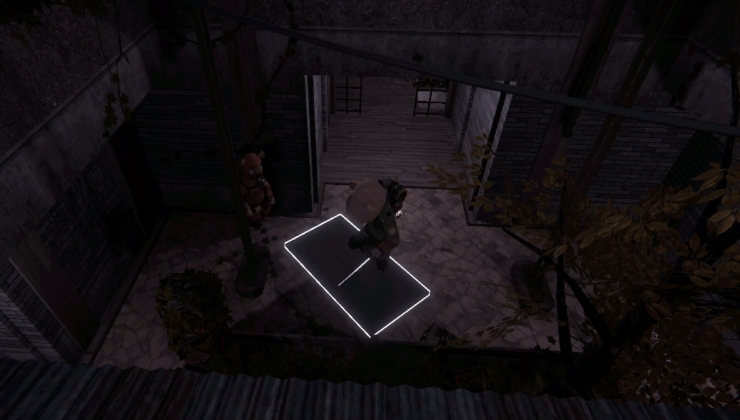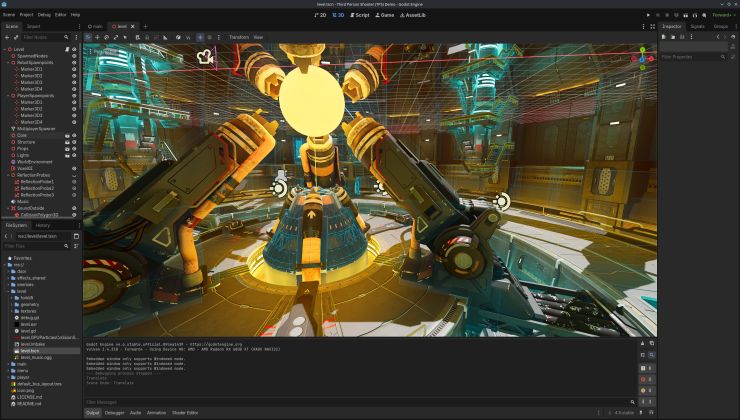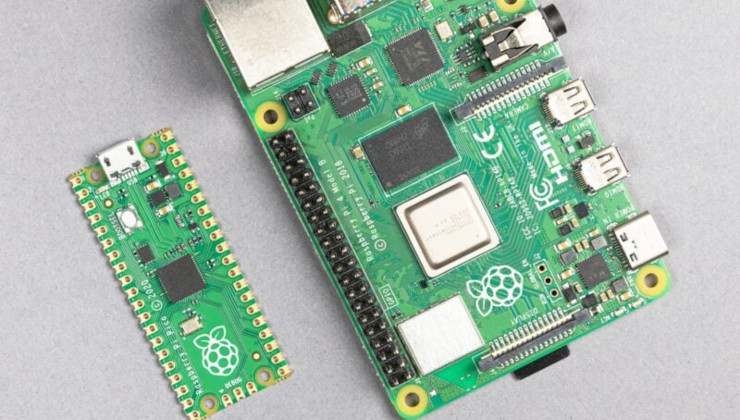KDE developers confirm Plasma will continue having a maintained X11 session, and now we know Kubuntu will be Wayland by default.
On the KDE side, developer Nate Graham wrote a blog post to note that "Plasma's X11 session continues to be maintained". Graham said this means:
- We’ll make sure Plasma continues to compile and deploy on X11.
- Bug reports about the Plasma X11 session being horribly broken (for example, you can’t log in) will be fixed.
- Very bad X11-specific regressions will probably be fixed eventually.
- Less-bad X11-specific bugs will probably not be fixed unless someone pays for it.
- X11-specific features will definitely not be implemented unless someone pays for it.
However, the future is still very clearly Wayland-focused. There's no timeline for when Plasma will drop X11 support as it's still years away, but it will happen eventually. There's still a number of significant issues they're working through.
KDE's own stats show that "73% of Plasma 6 users who have turned on telemetry are using the Wayland session". Again, this is why telemetry is useful, it can show developers where they need to actually focus, it's not the bad word many seem to think it is.
As for Kubuntu, as confirmed by developer Rik Mills in reply to a user question about shipping a Wayland-only session (cheers, OMGUbuntu):
Yes, we have recently split the plasma sessions out into 2 separate packages, plasma-session-wayland and plasma-session-x11. At the moment we intend to ship the wayland one by default on the ISO and installs, while users who still want an X11 session will be free to install the X11 one.
Not surprising, with Ubuntu proper firmly moving to Wayland.
I get the point of "we have to move forward", but I'm still hit with very casual things that are not working that great with KDE on wayland that are not an issue in X11. Such issues include proper clipboard integration (I know there's ongoing work regarding that, in particular with xdg-portal), some apps having issue with their contextual menu showing nowhere near where they should, some screen-specific application being unable to know/settle on a specific screen, etc.
I'll keep checking on the regular; it's trivial to move from one to another after all, no configuration required. But it remains important to keep that option as long as very common issue can still show up.
Again, this is why telemetry is useful, it can show developers where they need to actually focus, it's not the bad word many seem to think it is.Ugh. Telemetry driven development is the bane of my computing life. It insidiously causes some devs to use it as a substitute for actual thinking instead of as a support.
do you have any dev experience?
telemetry IA super useful, especially on case of limited resources...
Ugh. Telemetry driven development is the bane of my computing life. It insidiously causes some devs to use it as a substitute for actual thinking instead of as a support.I doubt that's the case here. And in open-source, it's absolutely vital, since you don't get to interact with your user-base otherwise, except through forums/discord, which carries an enormous bias (the only people who interact this way will be technically-focused anyway, while your "normal" goes unnoticed, which is especially likely now that the SteamDeck has jumped into so many non-techie lives).
This article has reminded that I turned user-feedback off when I last installed, thinking that I'd turn it on later. And I forgot to do so! It's now on, at one setting lower than maximum. Nice wee app, integrated into Settings.
About telemetry, I have no issues with it, as long as it's opt-in (not opt-out), being made clear what data is being transmitted, no personal data is collected, and it is assured that not one bit of data will ever be used for any purposes other than improving the software. Being a developer myself I do understand the value of such information, and not every time software is "phoning home", it's for evil purposes.
I have no problem with KDE's telemetry as I trust them fully and they clearly state what's being gathered. That's more than I can say about Microsoft or Google. I would prefer if it was opt-out as that would give them more representative data but I get this is a touchy subject in the community xD
Ugh. Telemetry driven development is the bane of my computing life. It insidiously causes some devs to use it as a substitute for actual thinking instead of as a support.No it isn't. Because otherwise I'd be still developing Internet Explorer-compatible web applications...
I've found Wayland works ok on most of my laptops but not at all working on my desktop that has Nvidia graphicsWorks fine on my 3060. I've been on COSMIC for nearly a full year, and it's been a wonderful experience. Make sure you're using a driver version above 560 (or explicitly go with 575 if you use gamescope, as it fixes a Vulkan bug), and make sure that you're using a desktop environment that properly utilizes explicit sync. Wayland on Nvidia is abysmal without those two factors, and you can check if explicit sync is in use with Waycheck. It lists all of the protocols your DE supports. I don't remember explicit sync's specific name off the top of my head (it's something like objsync_v1), but just filter by the term "sync", and if it shows up in bold letters, that means it's in use.
The excerpt from Nate Grahams blog seems pretty clear on that, does that automaticly translate to everything that uses KDE (including Kubuntu)? I really hope so, but then I don´t understand what actually changes.
Cheers
A confused Linux noob :wink:
What are the countless problems you encountered with Wayland? Having looked at the "Significant issues" list by KDE the bugs left looks to be rather specific use cases. Nothing wrong with that, I'm just curios :)
As for the problems, it was all kind of different things. A very good example was the last odyssey of trying to get certain games to run properly in 16:9 on my 32:9 screen. Many new-ish games (for example the System Shock Remake and Nobody wants to Die) behaved very strange with the resolution settings. Obvious solution for me was to run them via Gamescope in my preferred resolution. But in Fullscreen and Windowed-Fullscreen modes, Gamescope always kept the game on the left half of the screen (I want them centered). I tried a lot of possible solutions with forced positioning until I found out unlike X11, Wayland seems to just ignore them. I then tried to solve it with the Window-Behaviour-Tools (awesome tools btw.. as a Windows native from 3.11 to Win10, I could only dream of something like that), but could only get to a halfway acceptable workaround... basicly making windowed Gamescope look like borderless, but I either had to switch my taskbar to auto-hide or make the window always-on-top, so Alt+Tabbing wasnt possible anymore... both stuff I´d hate.
After a while I simply tried X11 just to notice that I don´t even need gamescope anymore because all the games where behaving just as I wanted while also solving most other problems I still had on my todo list and make most of the workarounds for problems I already solved unnecessary.
I can imagine most of the problems I encountered stem from me using a 32:9 screen and a rather new GPU (RX9070) and there are probably better solutions than the ones I worked out, but for me it was over a month of problem-whack-a-mole with solutions often leading to new problems that I could've spared myself by just using X11 from the start. I believe Wayland will be the future and it will be a good one, but for now I really want to stick with X11 until Wayland works better for my setup and preferences.
Since you asked, some other problems I encountered off the top of my head (I had solved some of them and for the other I was glad I no longer have to bother):
- Search within in the Steam-client (STRG+F) didn´t work properly (seemed to be some window-focus problem).
- Videos from Firefox's picture-in-picture mode didn´t stay on top
- Everything in the app "KolourPaint" looked ugly/oversharp.
- Some rare seconds-long graphics bugs with wrong colors, flipped image etc. that seemed more like typical effects of a damaged-cable or port (completely gone with X11, but they're back when I switch to Wayland).
- Like in my example above, I encountered other possible solutions for some problems that would've worked with X11 only to later find out the problem itself doesn´t even exist in X11, so the solution would work but isn´t needed anymore.
- I still have some wonkyness here and there with focus-behaviour of some windows/apps that I have to hunt down, but it feels like its down to only a third of what it was before. This is very subjective and might have to do with other stuff or just my imagination or some changes in my own usage behaviour, not sure.
Last edited by RavenWings on 30 Jun 2025 at 11:15 pm UTC
Thanks for taking the time to write about your experiences. It was an interesting read. Most of the things I rarely use but I'm eager to test Steam search, Firefox PiP and KolourPaint. What if they are broken and I just didn't realize? :O Let's hope Wayland keeps getting better at a decent pace. I mean the situation with full screen games doing what ever is just wacky. Beyond All Reason keeps opening on the wrong screen and I can't for the life of me make it not do that. It's not a huge thing as I just move the window over when the game starts but still. It's wacky.











 How to setup OpenMW for modern Morrowind on Linux / SteamOS and Steam Deck
How to setup OpenMW for modern Morrowind on Linux / SteamOS and Steam Deck How to install Hollow Knight: Silksong mods on Linux, SteamOS and Steam Deck
How to install Hollow Knight: Silksong mods on Linux, SteamOS and Steam Deck